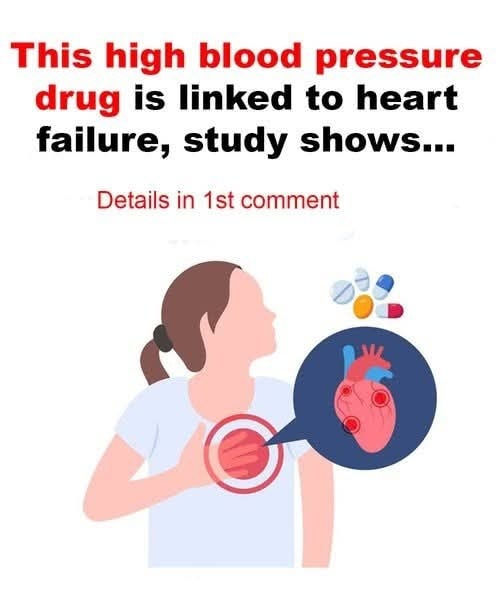A widely prescribed medication for high blood pressure may be putting patients at risk of developing heart failure, according to new research that is raising serious health concerns.
What the study found
Researchers analyzed health data from thousands of patients and found a significant link between long-term use of a certain type of antihypertensive drug — known as calcium channel blockers — and an increased risk of heart failure. These medications are often used to relax blood vessels and lower blood pressure, but the study suggests that they may have unintended effects on the heart over time.
Who is most at risk?
The risk appears to be higher among older adults and individuals with pre-existing heart conditions. Patients who had been using these medications for more than five years showed a higher incidence of heart-related complications, including shortness of breath, swelling in the legs, and reduced heart function.
Expert opinions
Cardiologists urge caution but not panic. “This doesn’t mean everyone should stop their medication,” said Dr. Elaine Harper, a cardiovascular researcher not involved in the study. “But it highlights the importance of regular check-ups and possibly re-evaluating long-term treatment plans.”
What should patients do?
If you’re currently taking calcium channel blockers or other high blood pressure medications, don’t stop them suddenly. Instead, speak with your doctor about your options. Alternatives such as ACE inhibitors or beta-blockers might be safer depending on your personal health profile.
The importance of monitoring
Heart failure often develops gradually, so being alert to symptoms like fatigue, fluid retention, and breathlessness is essential. Patients are also encouraged to monitor their blood pressure at home and report any unusual changes to their healthcare provider.
Conclusion
While the benefits of treating high blood pressure are well established, this study serves as a reminder that all medications come with risks. Staying informed and working closely with your doctor is key to managing both your blood pressure and your heart health effectively.


